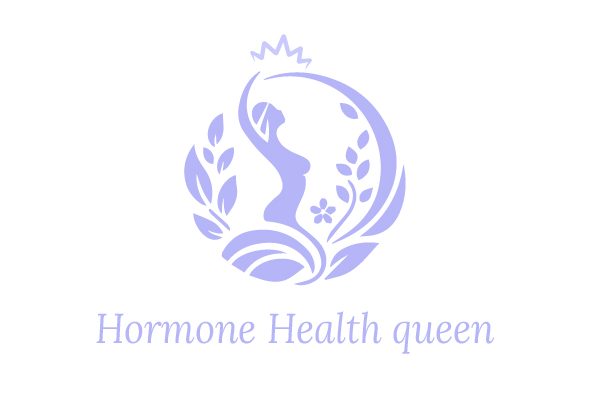Ah, pregnancy—the time when your body goes through all sorts of miraculous changes. Some thrilling, others a little unexpected, and most downright confusing! A question often tossed around during those early weeks is: when do pregnancy hormones start swirling through your system? This magical roller coaster begins sooner than you might imagine, and understanding the timeline can shed some light on those sudden cravings for pickles or abrupt bouts of sleepiness.
Getting to Know Pregnancy Hormones
**Let’s break it down.** Picture the moment that tiny sperm meets the egg. Almost instantaneously, your body begins orchestrating a hormonal symphony. Hormones like human chorionic gonadotropin (hCG)—the star of the pregnancy test kit—estrogen, and progesterone begin working overtime. They’re like those backstage crew members in a play, setting the scene and creating the magical atmosphere for the whole production.
The Early Stages: When It All Begins
Okay, let’s get precise here. For many women, pregnancy hormones kick in right after conception. Yup, they waste no time. **Once that fertilized egg plants itself into your uterine wall, hCG levels start to climb.** This usually happens about 6-10 days after conception. Technically, that’s before you even realize you’re pregnant, since missed periods—often the first major clue—occur about two weeks later.
But why all this fuss so early? Your body’s gearing up to support this tiny newcomer, nourishing it and setting up shop for the months ahead. Like preparing for a VIP guest well before they arrive.
Why Are These Hormones Important Anyway?
Ever tried building a house without a proper foundation? That’s akin to trying to maintain a pregnancy without these initial hormonal signals. They ensure that your growing baby has a safe, cozy environment to thrive in.
- hCG: Besides helping launch the whole motherhood ride, high hCG levels are what that trusty home pregnancy test is detecting. This hormone plays the lead role in signaling your body that you’re pregnant and helps maintain corpus luteum, which is nothing more than a little temporary gland. Sounds inconsequential, but it’s crucial for producing the estrogen and progesterone needed for your uterine lining.
- Progesterone: Known as the “calm and carry on” hormone, progesterone is vital for keeping the uterus hospitable, preventing early contractions, and helping with the puff and stretch needed down the road. Kind of like yoga for your uterus!
- Estrogen: It’s the multitasker, influencing the overall development and nurturance of that little baby bump. From skin deep, nourishing connective tissues, to into your bloodstream, estrogen’s making waves everywhere.
The Magic Timeline: What to Expect and When

Here’s a handy snapshot to help track these hormonal shifts:
| Weeks of Pregnancy | Key Hormonal Changes |
|---|---|
| 1-4 | Conception occurs; implantation signals hCG increase |
| 5-7 | hCG continues rising, progesterone ramps up, estrogen levels begin to rise |
| 8-10 | Peak hCG levels; “morning sickness” may kick in thanks to hormone spikes |
| 11-13 | Transition phase, hormones stabilize, placenta takes over hormone production |
This early chemical whirl starts signaling changes, often before you even realize you’ve embarked on this journey.
Real-Life Impacts: How You’ll Feel Those Hormones
So now you’re hormonal—or rather, your body’s set in this cocktail—it’s time to consider how this impacts life. And trust me, that experience is as unique as every expectant mother.
It’s Like a Roller-Coaster…
Remember those butterflies from your teenage years? Pregnancy hormones realign priorities, cause your emotions to run wild, and might even blur the line between laughing and crying. It’s tough. But here’s where it gets relatable: sharing this odd sensation of a million sweeping emotions with fellow moms can help you bond and find some unexpected humor.

Common Bodily Changes
- Morning Sickness: Not ‘just in the morning,’ of course. Blame hCG for turning even your favorite dishes into sensitive topics.
- Fatigue: High progesterone’s working magic again, slowing your metabolism to reserve energy for the baby.
- Breast Tenderness: Estrogen’s ramp-up makes your body and, yes, your bra choices temporary experiments.
Yet, through these ups and downs, every symptom ties remarkably to those little hormonal changes aligning for a bigger purpose.
So, What About Emotional Impacts?
Expect:
- Irritability: Like when you’re two sips into your latte, and they call out “decaf!”
- Mood Swings: Jumping from elation to worry might become a daily routine.
- Heightened Emotions: Prepare for unexpected tears… even during sitcom finales.
Practical Guidance: Handling Hormonal Shifts
Seeking a bit of control in this chaotic symphony? You’re not alone. Let these hormones guide your routine without dictating it.

Kick-Start Self-Care
Prioritize yourself. Engage in calming activities like relaxed yoga or easygoing strolls. **Stable routines, balanced meals, and handy sleep hacks** can alleviate exacerbated symptoms caused by those erratically vibrant hormones. Acute rest can keep mood swings at bay.
Engage with Your Medical Advisor
Plus, your physician plays a starring role here, monitoring hormone levels to ensure the pregnancy is progressing healthily. Open those conversations, and ask all your “is this normal?” inquiries. Trust me, they’ve heard them all before!
Connect with Fellow Moms
Even platforms at mom’s groups or simple texting with a seasoned mom friend provide emotional reassurance unobtainable elsewhere. You’ll naturally uncover shared experiences, gain practical suggestions, and discover some funny “you too?” tales. Lead these dialogues to keep giving comfort and gratitude for this miraculous life chapter, especially on seemingly never-ending days.
Reflecting Back: Appreciate the Hormonal Journey
Almost there, mom-to-be—through exploring how pregnancy hormones start and what roles they play. It’s a remarkable journey filled with relentless ups and sometimes formidable downs. Yet, stepping back, it makes childbirth miraculous crave-worthy even when just one phase of the multifaceted motherhood journey begins.
There’s no one-size-fits-all handbook here, but understanding these heralding hormones grants some peace about the stunning changes ongoing behind the scenes. Whether it’s your first or fifth pregnancy dance, every moment holds significance. Relish it like those rare perfect pie slices before the rest disappears.
Remember, dive into learning with confidence, emotional support blooms, and errands can wait, but nourishing yourself, embracing mood swings, recognizing the significance, and above all, smiling through tears fundamentally enlarge this beautiful life swirl you’re living.
Most importantly, ride the wave of this wondrous affair with glowing anticipation! Lean into curiosity, connect with nurturing communities, cherish authenticity and take advantage of each serendipitous realization moment. For these hormones may surprise, but they sculpt vivid chapters alongside your creating story, housing gleaming wings of motherhood.
Frequently Asked Questions
What are the benefits of using a hair mask in my hair care routine?
Using a hair mask can provide several benefits, including hydration, smoothing, strengthening, curl definition, heat protection, and damage repair. Hair masks infuse the hair with moisture, help coat the hair shaft to seal split ends, reduce breakage, and protect the hair from heat styling and environmental damage[1][4].
What ingredients should I look for in a hair mask?
Effective hair masks often include ingredients such as coconut oil, argan oil, shea butter, honey, avocado oil, green tea, and coconut water. These ingredients provide nourishment, moisturize, and protect the hair, offering benefits like softening, moisturizing, and protecting against damage[2][5].
How often should I use a hair mask in my routine?
You should use a hair mask whenever your hair feels dry, unmanageable, or in need of intense hydration. This can vary depending on your hair type and needs, but generally, using a hair mask once or twice a week can help maintain healthy and moisturized hair[1][4].
How do I apply a hair mask for the best results?
To apply a hair mask effectively, shampoo your hair first, then apply the mask, focusing especially on the ends where hair tends to be the most damaged. Leave the mask on for anywhere from 10 minutes to overnight, depending on the type of mask and your hair’s needs[1][4].
References



